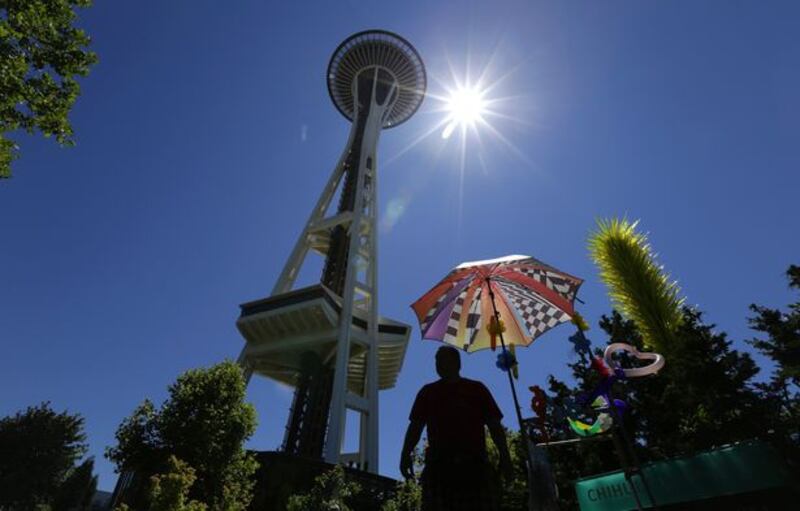People across Washington are scrambling ahead of the extreme heat that’ll deliver multiple triple-digit heat days.
Meteorologists are seeming more bullish that Monday will represent an all-time high temperature recorded in the Seattle-area. The state’s climatologist, Nick Bond, tells KIRO7 that we’ve seen similar weather setups in the past, but the changes we’ve already witnessed due to climate change make this event pack a bigger punch in the form of higher temperatures.
“It means when we have an extreme event, it’s that much more severe,” explained Bond. “We don’t think these weather patterns are necessarily going to come along more often, but it will be that much worse when they do come along.”
Making matters worse, further temperature increases are “baked in” thanks to the amount of carbon we’ve already put into our atmosphere.
[DOWNLOAD: Free KIRO 7 News and PinPoint Weather apps for alerts as news breaks]
“Yes, we’ve baked in some warming -- pun intended -- which makes it that much more important, in my mind, to do something about it because of this delayed response.”
While our impending heat is concerning, the effects have a far reach. In addition to health concerns, the Climate Impact Group at the University of Washington listed a number of key issues Washington faces: shrinking glaciers in the Cascades, less snow-pack and a warming Puget Sound among others. Those things combined spell danger for our area’s already endangered salmon population and, further up the food-chain, the southern resident orcas.
Drought from higher temps could also lead to worsening wildfire seasons and issues for farmers in the eastern part of the state.
Of course, the short-term issues are real too. This week, the city of Seattle’s parks department is working to repair drinking fountains in city parks. Around 80% of the drinking fountains weren’t running earlier this week -- though wade pools and cooling centers have been opened.
Seattle city councilmember Tammy Morales summed up the concern for now and the future in a tweet, writing: “The old axiom that ‘Summer in Seattle starts after July 4th,’ no longer holds. Seattle is getting hotter, earlier, and for longer periods than before. Our City’s planning for dangerous weather must catch up to the impacts of climate change. We must prepare for keeping seniors cool, ensuring clean drinking water is available at City fountains, and making restrooms and sinks available for our homeless neighbors. We must change our plans to be ready in June, not July.”
Bond said that Washington has already experienced measurable change, noting that historically we saw temperatures above 90 degrees roughly 3 times a year, with 5-6 days becoming more common in recent decades. The trends show that more days will be added in the future, and during extreme events like we’re experiencing now, the temps could climb higher.
©2021 Cox Media Group








